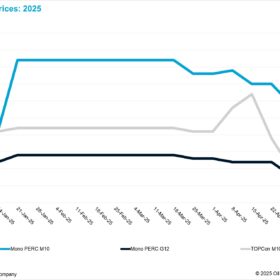In order to survive in a dynamic business landscape, keeping up with change and constantly innovating is the only solution. This differentiates companies from other businesses and ensures that they remain ahead of competitors, specifically in supply chain management aspects.
To stay competitive and deliver exceptional results, companies need to adapt their supply chains to meet the demands of their customers. Innovative supply chain management helps achieve operational efficiencies and product transformation. The role of supply chain innovations in improving product quality cannot be overstated. In this way, companies may streamline their operations by integrating advanced technologies or can adopt new methodologies, which can increase agility and respond effectively to market demands.
Role of supply chain innovations
Real-time data visibility is the most crucial aspect of modern supply chain management. Companies should utilize Internet of Things (IoT) devices, blockchain technology and cloud-based platforms to monitor their global supply chain networks. This gives key details on inventory levels, manufacturing progress, and shipping schedules. It helps partners make smart choices before problems arise in their wide-ranging business network.
In the same way, automation and robotics are changing how supply chains work. They cut down on manual work and boost productivity. Automated systems for warehouses filling orders, and managing transportation make things more efficient and accurate. Robots can do repetitive jobs, which lets human workers concentrate on more important tasks. This leads to better overall efficiency in operations.
It is necessary to have a good prediction of the demand to optimize production schedules and minimize waste. Companies can predict market trends and customer preferences with increased accuracy through data analytics and machine learning algorithms. This enhances efficient inventory management which makes sure that products are available at the right time. Warehouse management systems (WMS) ensure FIFO (First-In-First-Out) and real-time location tracking, while freight management systems optimize transportation costs. Container Tracking systems and real-time delivery update through transportation management systems (TMS) provide end-to-end visibility and control over logistics processes.
The future of supply chain innovations
Sustainability is becoming a key consideration in supply chain management. Many companies switched to environmentally friendly practices to reduce their carbon footprint and comply with government regulations. Green logistics, sustainable packaging, renewable energy sources among other innovations do not only save the environment but also improve brand reputation and enhance customer loyalty.
The future of supply chain innovations depends on integrating cutting-edge tech and prioritizing sustainability. AI, ML and blockchain will have an increasing impact on supply chain visibility, decision-making and transparency. Also, adopting circular economy principles will push companies to create more sustainable supply chains. Businesses will put more effort into cutting waste, reusing materials and building closed-loop systems to lessen their environmental footprint and boost resource use.
In essence
Supply chain innovations are crucial to transform products in today’s fast-moving business world. When companies use advanced tech, eco-friendly methods and customer-focused strategies, they can boost their efficiency, cut costs, and deliver better products and services. Looking ahead, supply chain innovations will bring even bigger improvements driving more changes and sustainability in the industry.
The views and opinions expressed in this article are the author’s own, and do not necessarily reflect those held by pv magazine.
This content is protected by copyright and may not be reused. If you want to cooperate with us and would like to reuse some of our content, please contact: editors@pv-magazine.com.








By submitting this form you agree to pv magazine using your data for the purposes of publishing your comment.
Your personal data will only be disclosed or otherwise transmitted to third parties for the purposes of spam filtering or if this is necessary for technical maintenance of the website. Any other transfer to third parties will not take place unless this is justified on the basis of applicable data protection regulations or if pv magazine is legally obliged to do so.
You may revoke this consent at any time with effect for the future, in which case your personal data will be deleted immediately. Otherwise, your data will be deleted if pv magazine has processed your request or the purpose of data storage is fulfilled.
Further information on data privacy can be found in our Data Protection Policy.